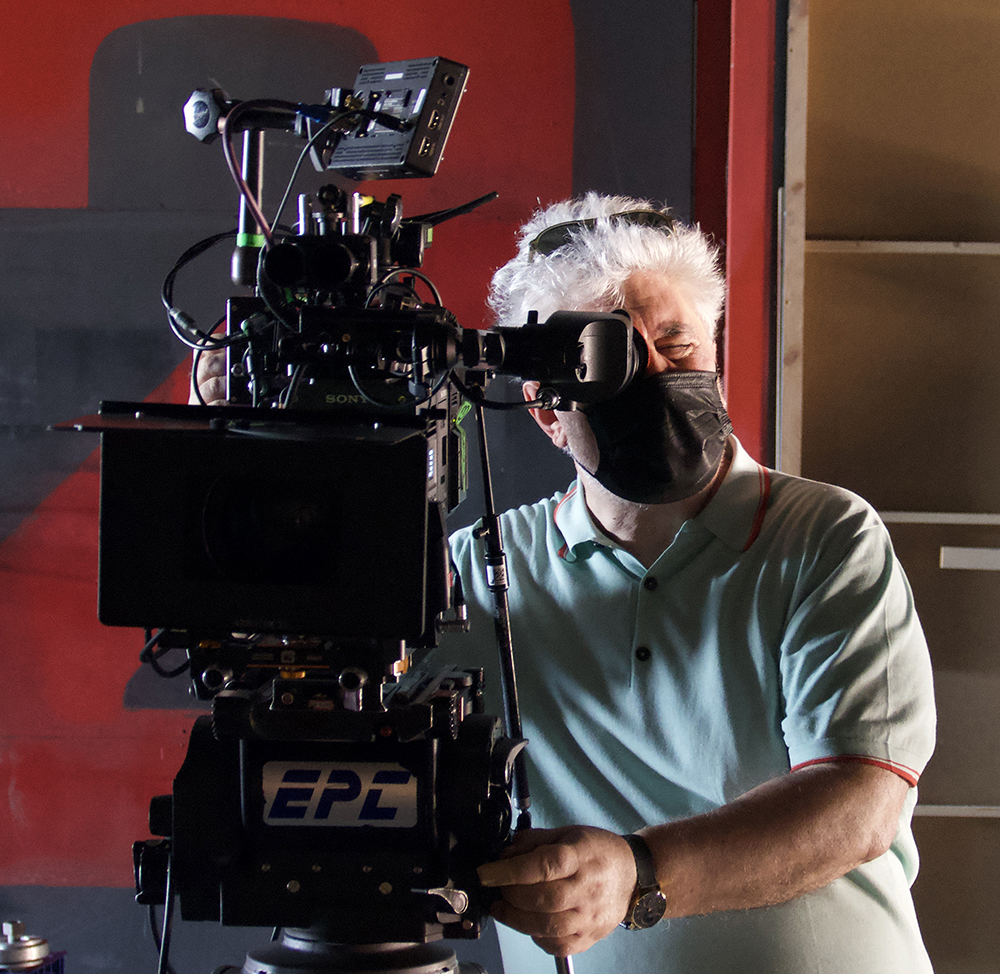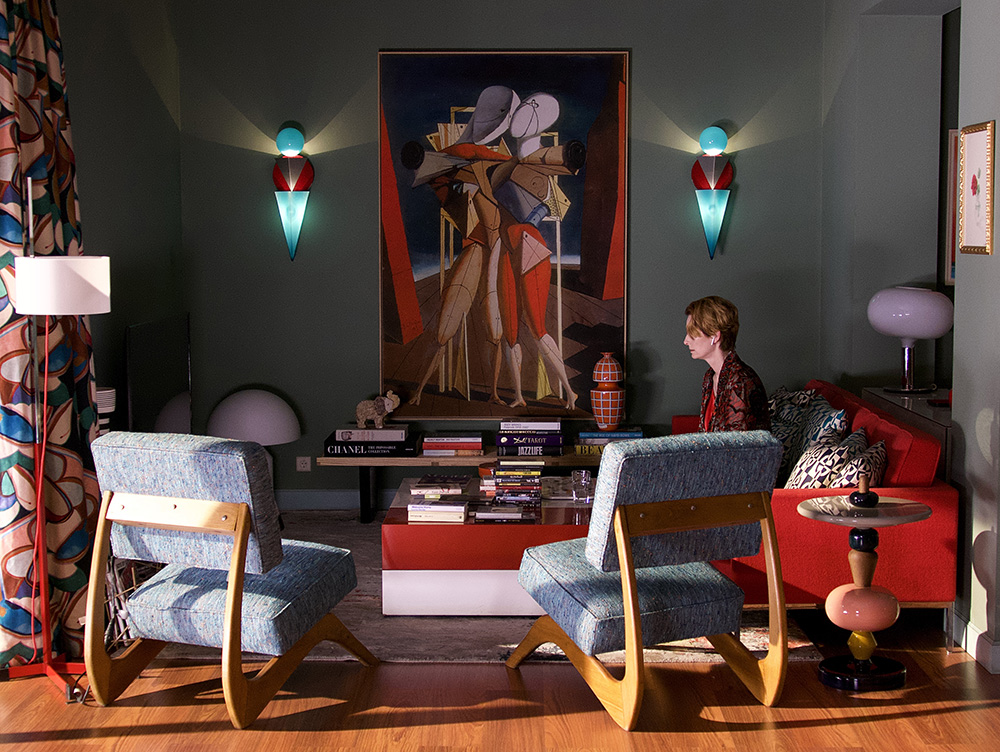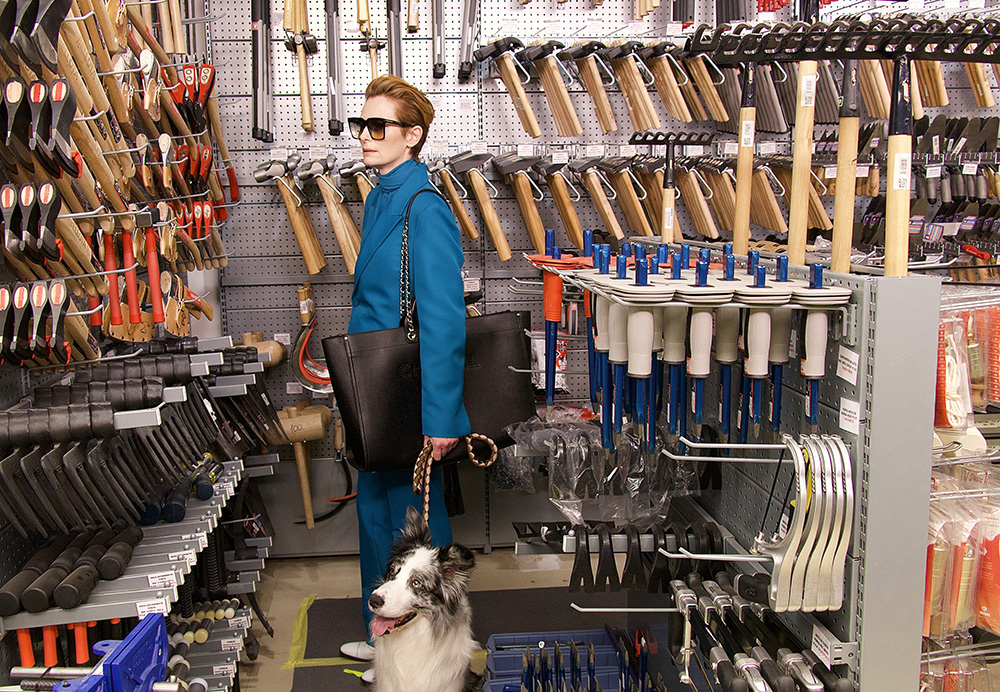Pedro Almodóvar on The Human Voice, his favourite colour and how to get over an ex
Exclusive: "If you’re a writer, [heartbreak] is a very interesting situation," says Spanish filmmaking icon

Words: Jamie Tabberer; pictures: Pedro Almodóvar (credit – El Deseo D. A. S.L.U., by Nico Bustos), and Tilda Swinton in The Human Voice
“Imagine a situation with kids, a problem in the family, and all the parents seem to be doing is their best to kill each other.”
No, filmmaking icon Pedro Almodóvar is not describing the melodramatic plot of his latest film. Rather, he’s describing Spain’s “chaotic” political response to coronavirus last October.
Allow us to contextualise. We interviewed the Oscar-winner – whose films include All About My Mother, Volver and Julieta – on the eve of release of the Tilda-Swinton-starring short The Human Voice. Coronavirus put paid to that, however, and the film finally hits UK cinemas on 19 May 2021.

Picture credit: El Deseo D.A. S.L.U. by Iglesias Mas
Speaking from Madrid – “the worst place” in Spain for coronavirus at the time – the 71-year-old sounded off. “Here, we have a problem almost as big as the pandemic itself – we have political parties using the pandemic to work against the government, in a very party-biased way,” he said.
“In Madrid, you have two governments: the national government [the Government of Spain] and the regional government [The Government of the Community of Madrid]. The regional government, the only aim it seems to have – and I think they’ve shown this, so I would dare to say this is happening – is to destroy the national government and put every single obstacle they can in their way. Every time they make a decision on the pandemic, the regional authority contradicts that.”
Transcribing our conversation with Pedro seven months later is a strange undertaking. The US election result, for example, is a distant memory. (“It was clear to me Joe Biden was the winner,” said Pedro. “Now I’m much more concerned!”)
But Poland’s so-called country’s ‘LGBTQ-free zones’? Not so much.
Last August, Pedro signed a letter expressing outrage at the situation in Poland, co-signed by creative heavyweights like Call Me By Your Name director Luca Guadagnino.
Pedro, who is gay (and something of a spiritual father for generations of LGBTQs, including this writer) tell us: “I don’t want to go as far as to say, ‘this absolutely is the way it is,’ but my impression is it’s an example of a country with a form of Catholicism that is reactionary and repressive. I of course send all my solidarity to LGBTQs over there and everywhere.”
“The short has turned out to be almost a metaphor for lockdown”
We put it to Pedro that The Human Voice and its predecessor, the Antonio Banderas-starring, semi-autobiographical Pain and Glory, are fitting lockdown films. In the former, Swinton plays a jilted lover teetering on breakdown while rattling around her apartment; in the latter, Antonio Banderas plays an ageing, near-housebound director yearning for connection. Both films deal with themes of aloneness and self-examination.
“I have had a lot of feedback like this, and identification with The Human Voice – isolation, confinement,” Pedro says. “It makes me very happy that in the end, this short film has turned out to be almost a metaphor for the current situation of lockdown. When I wrote it, that wasn’t the intention. The pandemic hadn’t actually hit us here in Spain. But certainly, it is talking about solitude. Nobody has said that about Pain and Glory to me, but yes, that’s about a man who is isolated. Why? Because of age, pain. But he’s in the company of all his paintings.”

Picture credit: El Deseo D.A. S.L.U., photo by Iglesias Mas
Beautiful abodes – and the paintings, furniture and sculpture-esque espresso machines therein – are a hallmark of Pedro’s films. Are such homes reflective of the 71-year-old’s own tastes, one wonders?
“Yes, it’s important they live in a beautiful place – at least, beautiful for me,” he says. “The Pain and Glory set was a replica of my place. […] As a director, [Pain and Glory’s] Salvador is very familiar with decoration, art. I thought it fits for the character that he could live in my place, to give him my own taste.”
Speaking of taste, a question that has always bugged this long-time Almodóvar fan: what is his favourite colour? (An arguably tasteless question it is, too, for a master colourist like Pedro).

Picture credit: Wiki
“I am looking for the technicolour beauty of colours, that belongs to the movies I saw when I was a child,” he says. “In the last movie, I use a kind of smoky green and different states of red. Red towards orange, red towards black. I’m using it more and more. But if there is any colour that dominates all of my films, it’s red. I don’t think there’s any film I’ve made that doesn’t have some sort of big, red stain in it.”
The Human Voice features a typically vibrant colour palette, but one about-turn is language. It’s the auteur’s first in English, and his fear of using it has been “erased with this experience.”
He puts his experimentation down to the film’s 30-minute running length. “The fact it’s a short film gave me a lot of freedom,” he says. “For instance, that I show what is surrounding the set itself – I would never have dared do that in a long film. And some of the furniture are pieces I’ve used before.”

Our parting question to Pedro is inspired by a plot point in The Human Voice: what’s his advice for getting over an ex, other than buying an axe?
“Time,” he says with a giggle, adding somewhat playfully: “I think perhaps go see a psychiatrist, a shrink. Get them to prescribe some pills for you, some painkillers. Because that is a painful thing. You have to make sure you don’t let pain take over you completely. Go get specialised help, is the tip. If you’re a writer, it’s a very interesting situation – take notes on everything!”
The Human Voice will be released on 19 May 2021.
The Attitude Sex & Sexuality issue is out now.
Guarantee your François Sagat or Reno Gold cover in print by subscribing here using either code FRANCOIS or RENO.
Subscribe digitally to the Attitude mobile and tablet edition for just over £1 per issue (limited time only).

